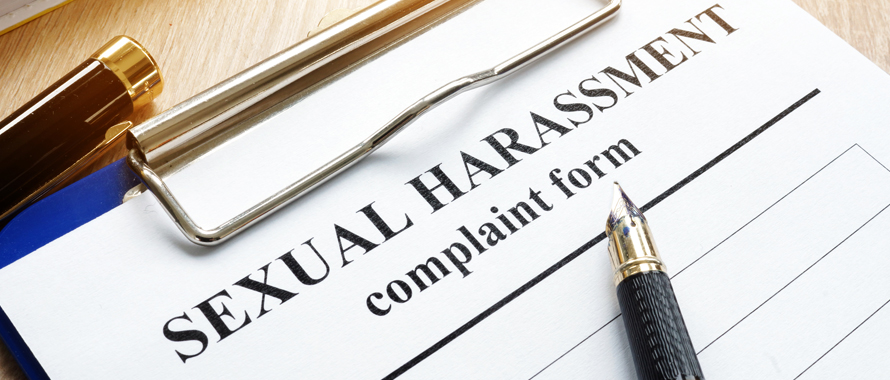Longtime NBC News anchor Tom Brokaw is the most recent celebrity to be accused of sexual misconduct, although he denies the claims.
This latest example of the #MeToo era Americans live and work in is prompting organizations to ask whether their insurance policies protect their executive team and employees from accusations of sexual harassment.
The insurance industry has offered products to help protect employers in situations involving harassment for decades. Yet in the wake of ruinous allegations against not just Brokaw but Harvey Weinstein, Matt Lauer, Kevin Spacey and a growing roster of high-profile celebrities and businessmen, insurance carriers have increased the number of resources they provide to policyholders. Organizations can take advantage of these resources to set up policies that could help avoid costly litigation, even if employees are not found to be at fault.
In 2017, the Equal Employment Opportunity Commission (EEOC) resolved 99,109 charges and secured $484 million in damages through mediation, conciliation and settlements for victims of discrimination. The average settlement for an employment practice liability matter is $125,000—taking 275 days to settle.
“Business owners should consider the risks associated with a changing workforce and decisions made about the business that can impact investors, donors, regulation, and even competitors. This can be found in two key areas: Employment Practices Liability Insurance (EPLI) and Directors & Officers (D&O) Liability Insurance,” said David Derigiotis, CIPP, Corporate Vice President and National Professional Liability Practice Leader, Burns & Wilcox, Detroit/Farmington Hills, Mich.
EPLI coverage
EPLI addresses such allegations as workplace harassment, discrimination and unequal pay. About seven out of 10 businesses do not purchase EPLI, according to TrustedChoice.com, an independent website that provides consumers with recommended insurance options based on their specific needs.
“The importance of EPLI coverage cannot be understated,” said Erica Rangel, Broker, Professional Liability, Burns & Wilcox. That is especially true with the rise of the “MeToo” movement, which created more awareness about sexual harassment, especially in the workplace.
In order to better combat sexual harassment and discrimination issues, many companies are required to have policies in place to address them, showing that there is a management effort to educate and inform employees of proper protocols. However, many are not aware that by purchasing an EPLI policy, insurance carriers offer free risk management and loss prevention services. Other services included are a 24/7 helpline, an employee handbook sample and legal services.
“Employment Practices Liability not only provides coverage for sexual harassment and discrimination, but also for discrimination based on sex, age, race, gender and religion; wrongful termination, failure to promote or employ and emotional distress,” Rangel said.
Added protection for executive team
In 2016, the EEOC released a report on workplace harassment in the United States. Among the key findings by the National Sexual Violence Resource Center (NSVRC) were that workplace harassment remains a persistent problem, often goes unreported (in part for fear of retribution), and that leadership and accountability are critical elements.
D&O coverage often applies to larger organizations that may be worried about the potential mismanagement of harassment situations, which in turn could adversely impact shareholders, company officers and other stakeholders.
“A number of factors should be considered when purchasing D&O insurance, including the organization’s financial strength, its operating industry, number of employees and risk tolerance,” Derigiotis said. Based on these and other factors, both D&O and EPLI policies may be required.
“It really comes down to working with a specialist who knows the market and can ask you the right questions so that you have the proper coverage, especially in this environment,” Derigiotis said. “That specialist can help better evaluate your risk. There is no one-size-fits-all approach, which is why it is so important that an organization consult with a specialist that focuses in this space.”
Crafting the right coverage for your business
Every situation and claim scenario is different, which is why an insurance specialist can help suggest the best options to limit risks. Factors that can impact the appropriate insurance required include the organization’s employment practices, state laws, targeted industries, a history of prior incidents and level of interaction with clients.
“Some of the basic items we look for are whether or not the organization has and makes accessible an employee handbook, conducts self-analysis for EEOC compliance, adopts a strong anti-harassment policy, and what the loss history reveals,” said Derigiotis.
This wording can show that an organization is dedicating time and resources to properly informing employees about policies relating to harassment as a way to encourage preventative behavior.
“Then the state where they operate is important because employment law is evolving. Some states are also historically more litigious than others,” Derigiotis added. “This can all help determine the coverage you should have.”
Derigiotis said that smaller companies may have an even greater need for EPLI and D&O coverage because they likely have fewer policies and procedures in place that can help protect them against such sensitive situations. “There are many types of actions that can trigger a claim and small businesses may not know what to look for or have the financial means to defend against a frivolous lawsuit,” he said.
“There is no cap on the policy limit when it comes to building the right coverage,” Derigiotis said. “We can build policy limits as high as needed based on the size and risk of an organization and always tailor the insurance specifically for each business.”
In some cases, the type of harassment alleged is more physical in nature. EPLI and D&O will not cover physical abuse, so a standalone sexual abuse and molestation policy on top of EPLI and D&O may be recommended. Such a policy can address more aggressive types of harassment or abuse. Healthcare institutions and schools specifically may want to consider these types of policies, Derigiotis said, because of the frequency with which these industries have come under scrutiny for more physical examples of harassment.
In the event of a harassment accusation, insurance specialists also can serve as resources to suggest legal counsel options and even third-party vendors that can provide employee training.
As with any coverage need, an insurance broker or agent must be consulted. Click here to forward this article to your insurance broker or agent to ask if you need this coverage, or share this with clients to start the conversation and ensure proper protection.
This information was provided by Burns & Wilcox, North America’s leading wholesale insurance broker and underwriting manager. Burns & Wilcox works exclusively with retail insurance brokers and agents to assist clients like you with their specialty insurance needs. Ask your insurance broker or agent if a D&O or EPLI policy is right for you.



